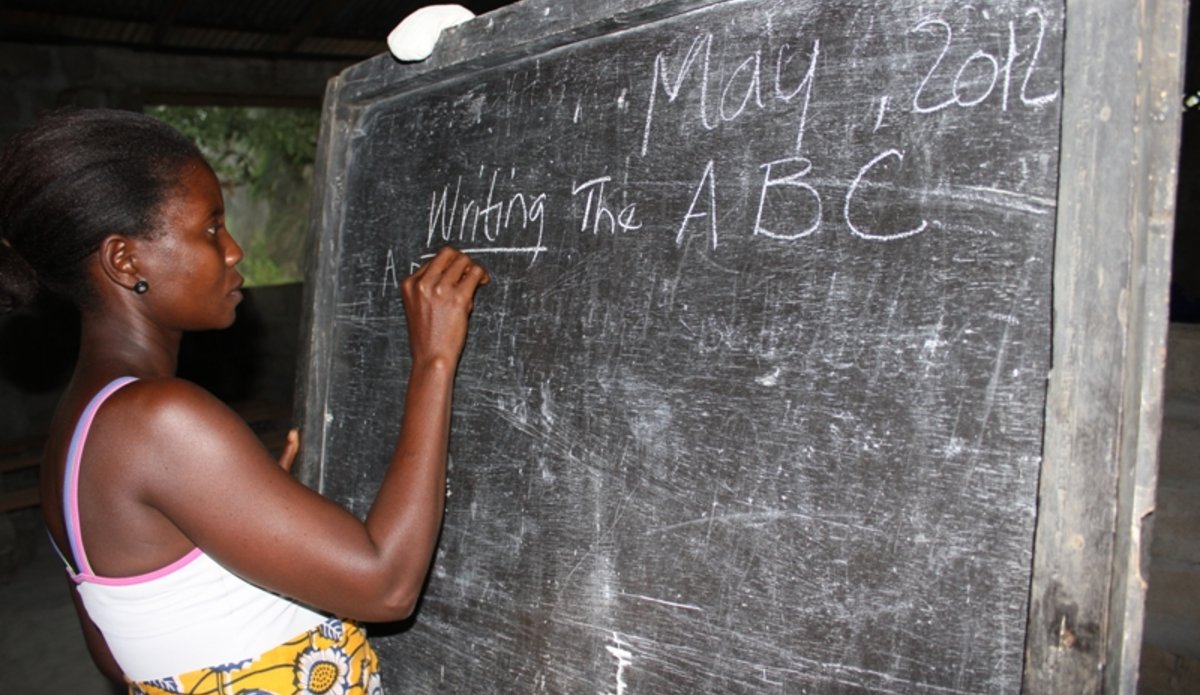Making Women Stronger One Class at a Time
“My eyes are now open. I can now count from 1 to 50.” Those were the words of Esther Weah, one of 40 rural women beneficiaries of an economic empowerment programme sponsored by UN Women in partnership with the Ministry of Gender and Development. The programme enabled Esther to read, write and experience a formal classroom education for the first time in her life.
Acquiring literacy and numeracy skills was an immense source of joy for all the women. Regina Toe, a single mother and school drop-out said the programme was first rate because the “instructors are wonderful and very understanding to each individual’s needs. They make me feel as if I am going to make it no matter what obstacles I may have,” she said.
Esther, Regina and the other students are inhabitants of Bacconi, a small fishing village of over two thousand people in Grand Bassa County. The economic empowerment project they benefited from is being replicated in Grand Gedeh, Nimba, Gbarpolu, Rivercess, and Margibi Counties. For six months the women are immersed in adult literacy, fish preservation and tailoring as a prelude to further work -- learning how to run Village Savings and Loan Associations.
“The Village Savings and Loan Associations provide an opportunity for the women to participate in a savings programme, earn interest on their savings, as well as to access credit to expand their businesses,” said Emily Stanger, Programme Manager of the Joint Programme for Gender Equality and Women’s Economic Empowerment (JPGEWEE).
“By increasing women’s access to financial services, improving their numeracy and literacy skills, and enhancing their economic skills in viable sectors, we are decreasing women’s economic vulnerability and ensuring that they have the self-confidence and financial independence to take a stand against violence in their homes and in their communities,” Stanger said.
One of the most important components of the project is its focus on dialogue with men, and community and religious leaders. According to Stanger, the dialogue works to raise men’s awareness of the benefits of women’s empowerment for their communities and their households. They also serve to educate the community on laws protecting women in Liberia, including the rape law and the inheritance law.
“UN Women will continue working with the women of Bacconi to build their skills in conflict mediation and peace building and to ensure that the community has direct linkages to the local branch of the Liberia National Police,” she said.
Since starting the tailoring and literacy programme in early May 2012, Weah, 59, who has never sat in a classroom before, said she is now able to recite and write the English alphabet, something that she couldn’t do before.
UN Women is the UN organization dedicated to gender equality and the empowerment of women, established to accelerate progress in meeting their needs worldwide. The Economic Empowerment of Women and Girls is one of the three key strategic priorities for UN Women in Liberia.
Additionally, the Government of Liberia and the United Nations system in Liberia prioritize interventions for women’s economic empowerment within the JPGEWEE.
Several beneficiaries interviewed praised the programme and said the initiative will help lift them psychologically.
 UN
UN United Nations Peacekeeping
United Nations Peacekeeping





